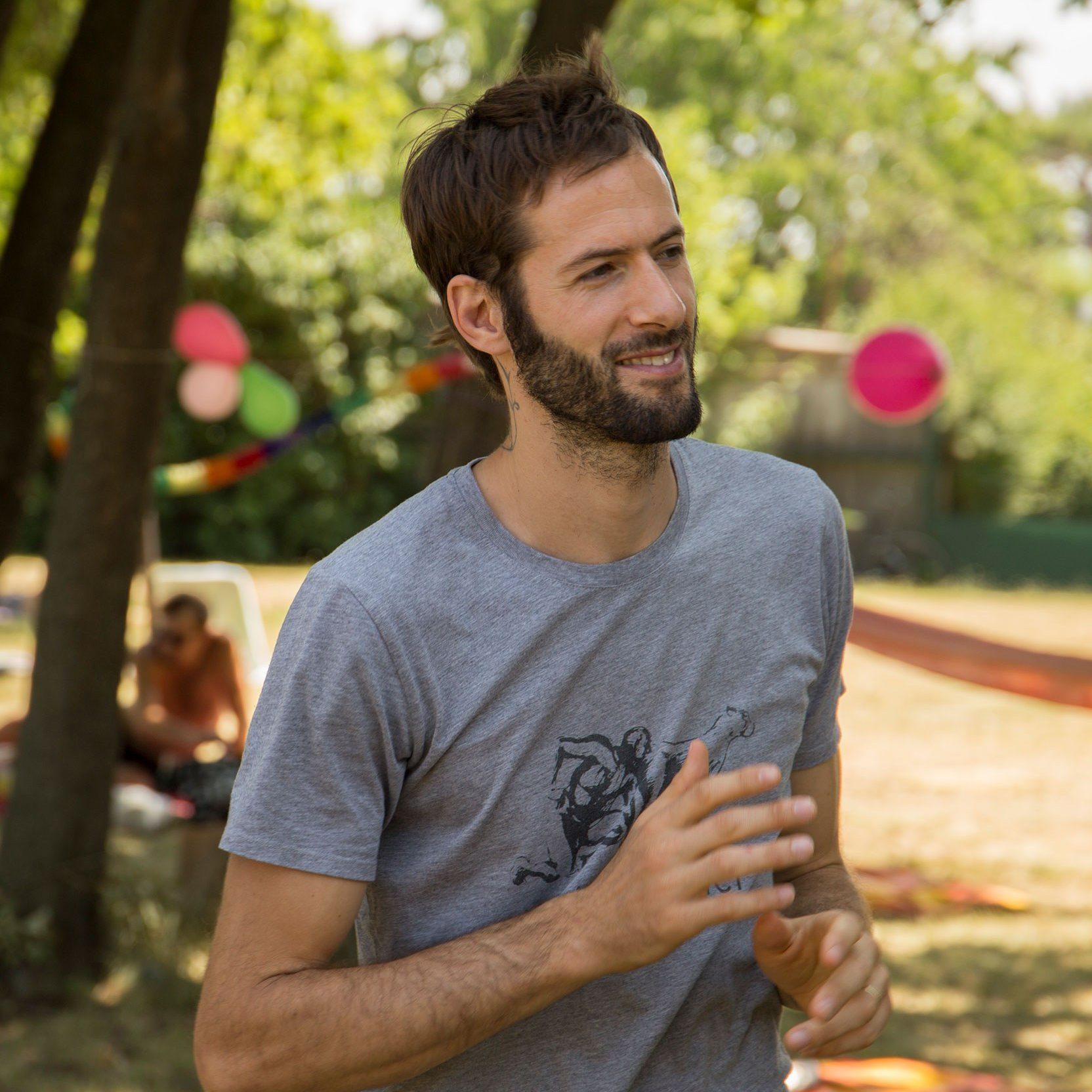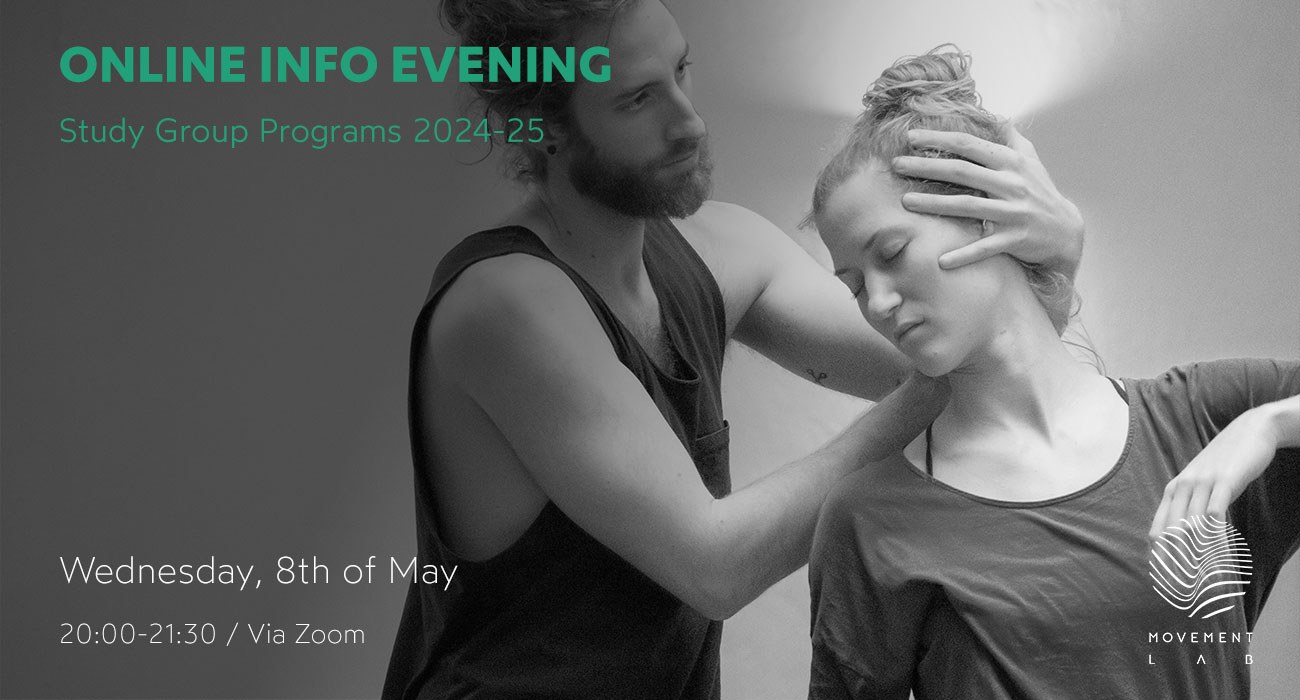Confronting agression
 by Matan Levkowich
by Matan LevkowichIn the last 15 years, I have been studying and teaching various forms of partner work. My fascination for the endless potential interactions with a partner, played a major role in my teaching practice.
As much as I love partner work, I recognised that the complexity of sharing your practice with others (that is manifested mainly by having less predictability on your experience) contains a ‘dark’ side - the potential of having a negative experience as a result of mixing your reality with another human being.
Nothing new under the sun. It is the risk that we all take when we go out to the world and leave the safety of our homes. But witnessing and hearing different people talk about their negative experiences in the realm of physical practices, did shed a different light on the topic of trauma and safety.
What I started to notice, is the proclivity of people to relate their negative experience to the notion of confronting an aggressive partner. And typically, aggression as a quality wasn’t related directly to the nature of the physical activity. On the contrary, most of the time the actual practice would call for a collaboration that aims for soft shared physicality (e.g., contact improvisation) and not an intense confrontation that typically characterises competitive partner practices like BJJ, MMA etc.
There is no doubt that fighting a partner, which mean avoiding all sorts of blows, preventing your joints from being hyper extended or being strangled unconscious, is more intensive and physically demanding than moving at your own pace and taking your time to find a flow between you and your partner.
And with that observation one has to ask a question - why do we tend to recognise aggressive behaviour in our partners while trying to collaborate? And what does aggressive behaviour actually mean?
Listening to students reflecting on their experiences clarified that as the perception of aggression infiltrated their minds, the feeling of safety dissipated. Now comes another important question - what are the preconditions for this mental shift? When do we evaluate behaviour as aggressive? The common notion I have found was a feeling that personal boundaries were not respected/recognised.
That notion helped me to distinguish between aggression and intensity and understand the foundational difference between collaboration and competition. When we engage in a competitive practice, we are much more prepared to ‘protect’ ourselves - as the nature of competition is lack of solidarity, it emphasises the need for self responsibility. In a competitive setup, there is less probability to find support from your partner so you focus on whatever you can do to support yourself. But in collaborative practices, we do expect more than that. As we are trying to do something together, we expect solidarity, care, attentiveness. Or in more common words, we expect our partner to listen to us.
You can observe those differences looking at the unwritten culture that surrounds each practice. I grew up in basketball culture in which I experienced competition as a positive way to engage in the sport, even while confronting intensive physicality that would challenge my safety. When I entered the contact improvisation world, I never had any negative emotional response to dance parters who ‘pushed’ me to my limits, even thought contact culture is somewhat anti-competition. At the same time, I maintained inner space to cultivate other qualities as well - patience, non doing, following etc.
From my point of view, there is nothing more sad to witness than two people sharing a dance and have a strong dissonance between their experiences. One person is elevated, happy and energised and the other is completely drained and traumatised. This dissonance demands careful attention - How could it be that my experience of heaven is my partner’s experience of hell? How can it be that my presence creates such negative effect?
As physical intensity isn’t the cause for negativity, the underlying issue here is how do we recognise boundaries, ours and of our partner's. In an ideal utopia, everyone would be super clear with themselves and take full responsibility to point out when something is too much. But not everyone is capable of such clarity, especially within the realm of physical exchange where we look for a non verbal communication.
Codifying the culture can definitely help - a recognised sign that implies that one needs a break can make things easier. But that can mislead us from personal development. The question we need to ask ourselves is how to develop the ability to sense the experience of our partner while not loosing the ability to maintain our boundaries. And this will naturally minimise the gap between our experiences.
I believe that developing self awareness is the right pathway. And not merely on the physical level but more important on the level of intentions. What do you want from your partner? What do you feel moment to moment? Do you consciously pursue your needs while ignoring your partner? Or do you start to disappear within the shared experience?
It demands a critical eye on your behaviour and to keep up space for adaptation. And to a certain degree, a more elaborated sense of self responsibly where you take full responsibility of the potential outcome of your behaviour. In other words - self responsibility that leads to solidarity.
Join our community online!
Did you enjoy this article? Don't miss the next one!
Subscribe to our newsletter and we'll deliver the next article directly to your inbox.
If you wish, we'll include you when announcing special events and online courses.
